BLACK RAINBOW (1989)
A young female medium on tour sees a hitman killing a whistleblower in her vision.
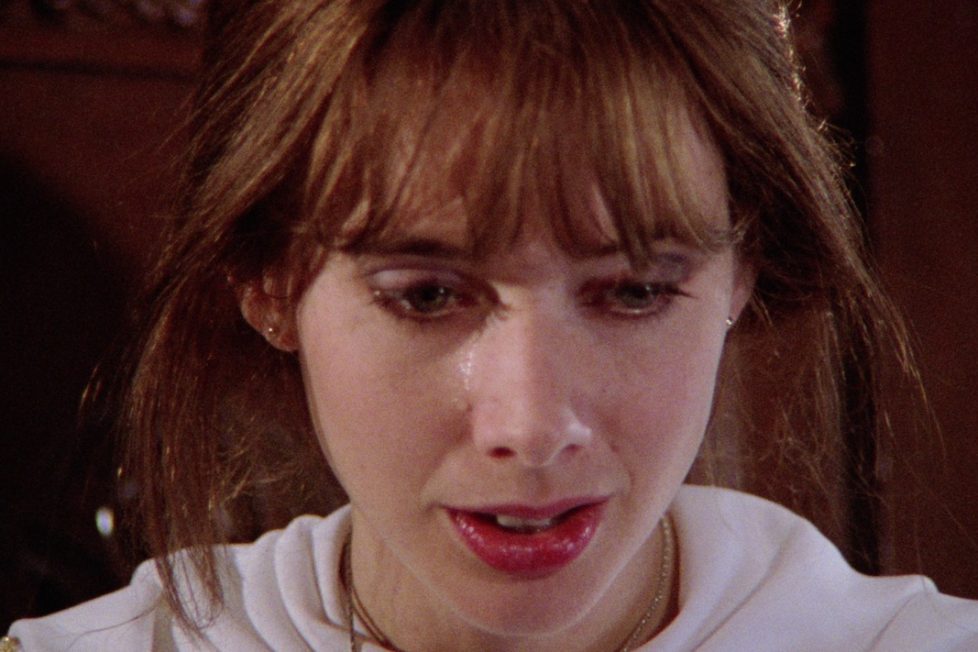
A young female medium on tour sees a hitman killing a whistleblower in her vision.


Martha Travis (Rosanna Arquette) and her father, Walter (Jason Robards), earn their money travelling around the Bible Belt of America running a classic medium scam. She sits on church stages in a flowing white gown, telling audiences the afterlife is nothing but rainbows and clouds, and then proceeds to relay messages for those that have passed over. They’re good at it, too, making enough money to retire in a few years. Walt used to run the scam with Martha’s mother until her death, but that’s a time father and daughter don’t speak about now… because, shortly before her death, Martha’s mother started to believe her powers were real.
While on stage one evening, Martha gets a message from a woman in the audience’s husband. But her husband isn’t dead, the confused woman explains. Undeterred, Martha presses on, describing the gory details of her husband’s violent death at the hands of an assassin. After the show, Walt forces her to apologise to the woman and chastises her for continuing the act when she knew she was wrong. But Martha explains it was different this time and she really was receiving messages from beyond. That’s nonsense, her father tells her, but that night things take a disturbing turn when the audience member’s spouse is gunned down in his home.
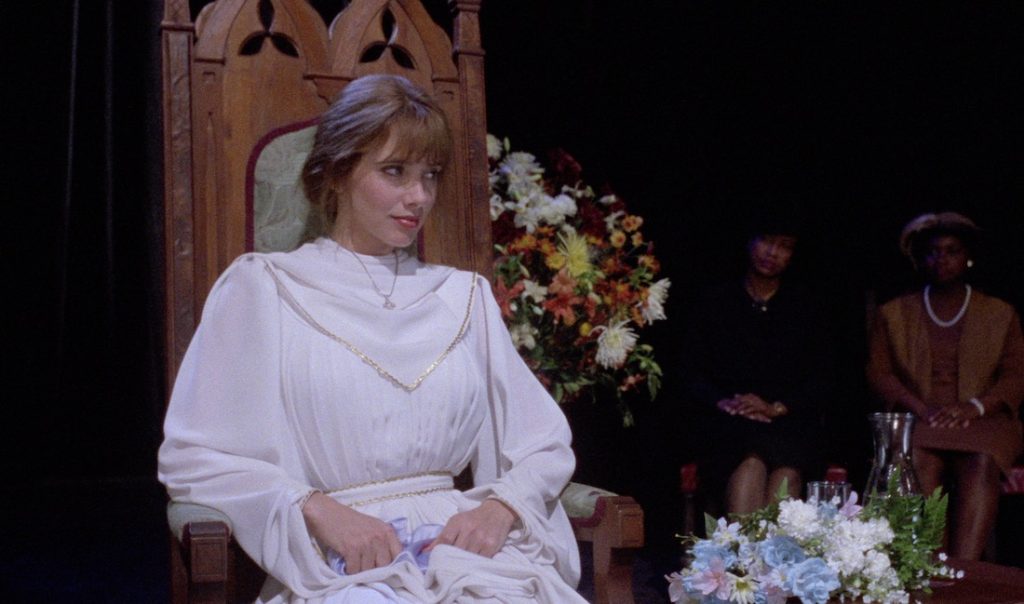
Rosanna Arquette (Desperately Seeking Susan) plays Martha as someone who’s turned cynical because of her father’s insistence at twisting people’s faith into “a variety act”. Her cynicism is given physical expression by her habit of having one-night stands with men she meets on their travels. Asked why she reasons “this way men lie with me and not to me.” Martha’s a difficult character to get a handle on. She never seems horrified by the realisation she can actually commune with the dead and, in fact, Arquette plays her as though she’s always suspected she had this power and that’s why she feels so bitter about having to fake it night after night. This slight remove, this failure to let the audience into her perspective, is why it’s a good performance from Arquette but not a great one. The fault for this lies with the screenplay; although Martha drives the story the nature of it relies on her being a figure of mystery rather than a real person. She’s also the sort of movie-woman whose underwear drawer contains only lingerie, letting you know she’s a woman seen through the male gaze. We often look at her, we rarely look with her.
As Walt, Jason Robards (Once Upon a Time in the West) relishes the meatiest part. Walt’s a complete cynic who knows Martha is a fake, just as he knew her mother was a fraud, and either of them suggesting otherwise sends him into a rage. He’s a passionate sceptic and a drunk, dripping with self-loathing and afraid of the idea his daughter and late wife’s power might be real because that would make him even more of a fraud. Some of the best scenes are the ones where the camera plonks itself down close to his face, looking as it does like a leather football that has had the stuffing kicked out of it, teeth bared like a rabid dog. And yet, like Arquette, when the time comes to fully unleash the emotions… Robards just can’t reach the pitch the film is aiming for. Why isn’t really clear, but it’s a flaw of every performance.
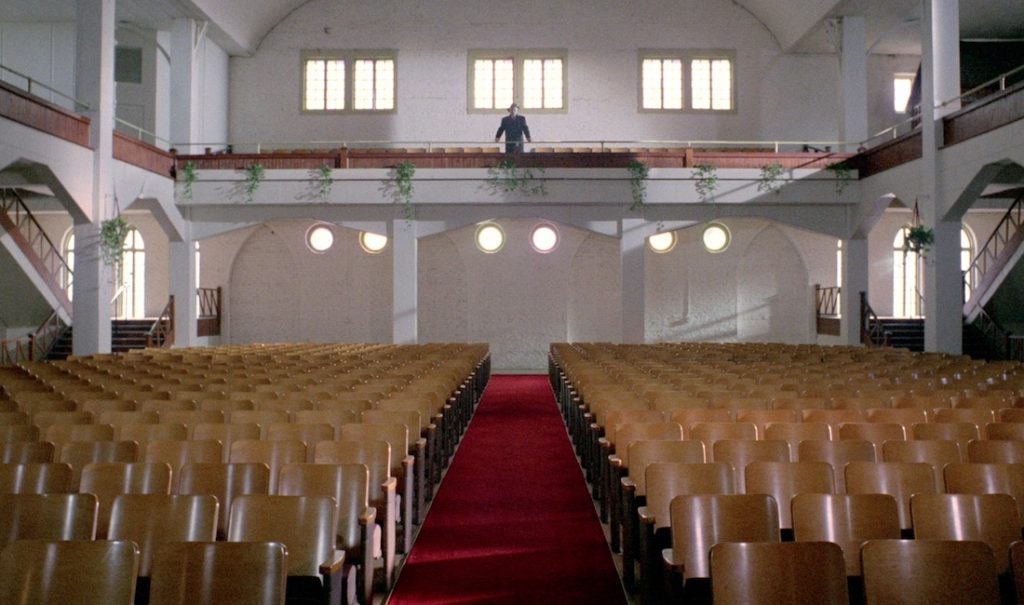
Completing the core triumvirate is Tom Hulce (Amadeus), looking scarily like Greg Kinnear to play Gary, a local journalist determined to uncover the true nature of Martha and Walt’s scam. But he’s primarily there to identify the assassin of the whistleblower and expose the corruption that’s being covered up by murder. The film doesn’t really know what to do with Gary, sadly, as he seems to be there to make things happen in the story and to have someone to explain Martha and Walt’s strange relationship to.
Filling out the supporting cast there are some intriguingly off-kilter performances, such as Mark Joy as the domesticated assassin waylaid by a delayed flight, and John Bennes as the android-like business magnate threatened by the whistleblowers. The real star of Black Rainbow, however, is writer-director Mike Hodges (Get Carter, Flash Gordon) who’s operating in the mode of the former film her, mercifully. It’s a skill rarely mentioned when praising directors but Hodges is a genius at framing. How he uses composition to make scenes dynamic and to convey information and emotion explains why Scorsese recommended Arquette accept the part just to work with him. Coupled with Gerry Fisher’s cinematography and the extensive use of South Carolina locations, it gives the film the grounded reality that Hodges brought to the pulpy story of Get Carter (1971).
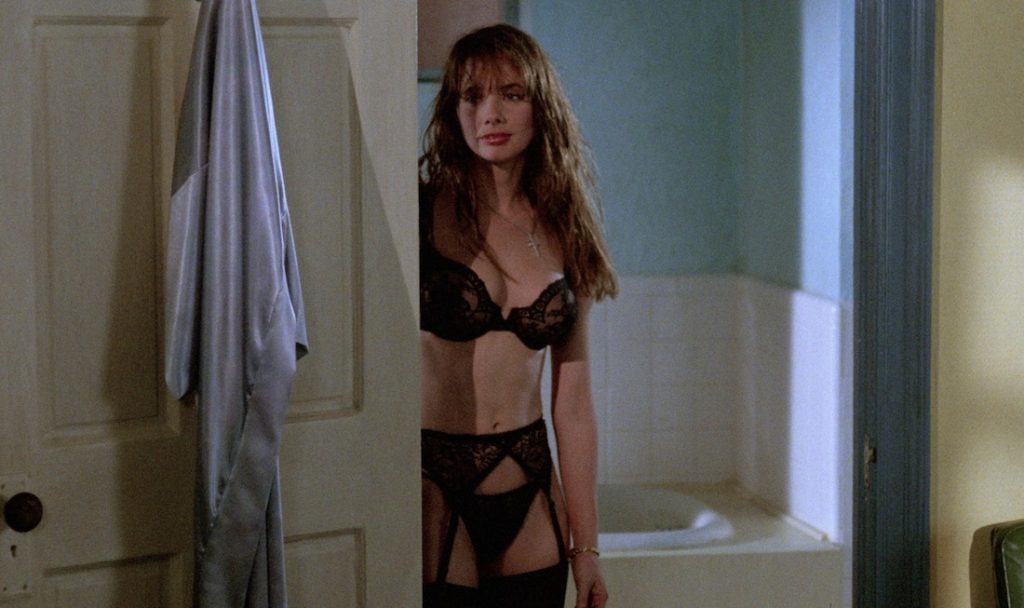
Alas, this isn’t a film about reality, it’s about psychic powers and precognition…. and Hodges seems to have forgotten this. He talks in the interviews included with the Special Features about his fascination with the Bible Belt and how an area so tied up with faith is also entangled with a ruthless form of capitalism that disavows unionisation and leads to the exploitation of ordinary folk. He talks about his fascination with the immense poverty in these areas, and about how the local media report horrendous crimes in sickening detail on the teatime news. Amongst all these ideas he is so fascinated with, the idea of a woman with supernatural powers becomes just another aspect of the story, as opposed to the story.
Black Rainbow has similarities to Stephen King’s The Dead Zone, which also deals with precognition of death and disaster, and religious fervour, but with none of the creeping dread of either King’s book or David Cronenberg’s 1983 film adaptation. Sure, one may argue that these are common horror tropes, and you’d be right, yet Hodges has made a film that is entirely un-horrifying. It’s not scary. It’s not creepy. It’s not even unsettling. There are no anxious conversations about Martha meddling with a power she can’t comprehend. No surprise deaths. None of the other elements of the horror genre one might crave. The ultimate problem with Black Rainbow is that it simply isn’t pulpy enough. The result is a film chock-full of good performances, wonderful cinematography, and authentic locations, all packed tightly around a hollow core. There’s nothing wrong with any of the ingredients and yet the final concoction is underbaked and flat. Hodges had all the right intentions, but ultimately he’s not interested in telling the story he’s telling.
UK | 1989 | 103 MINUTES | 1.85:1 | COLOUR | ENGLISH

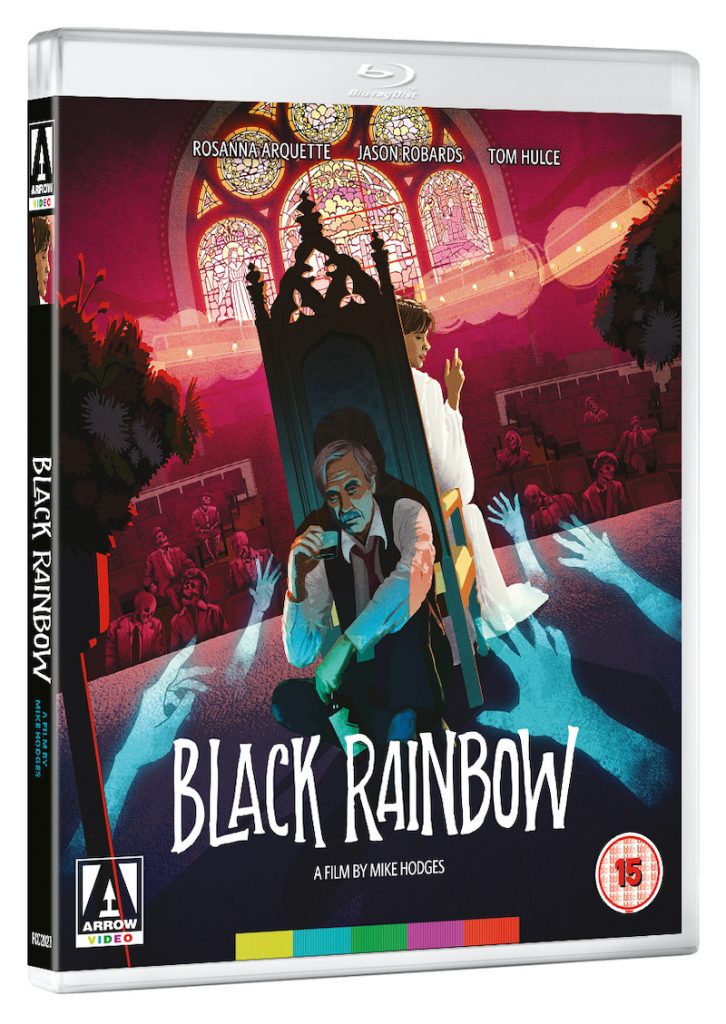

writer & director: Mike Hodges.
starring: Rosanna Arquette, Jason Robards Jr., Tom Hulce, Mark Joy, Ron Rosenthal & John Bennes.
